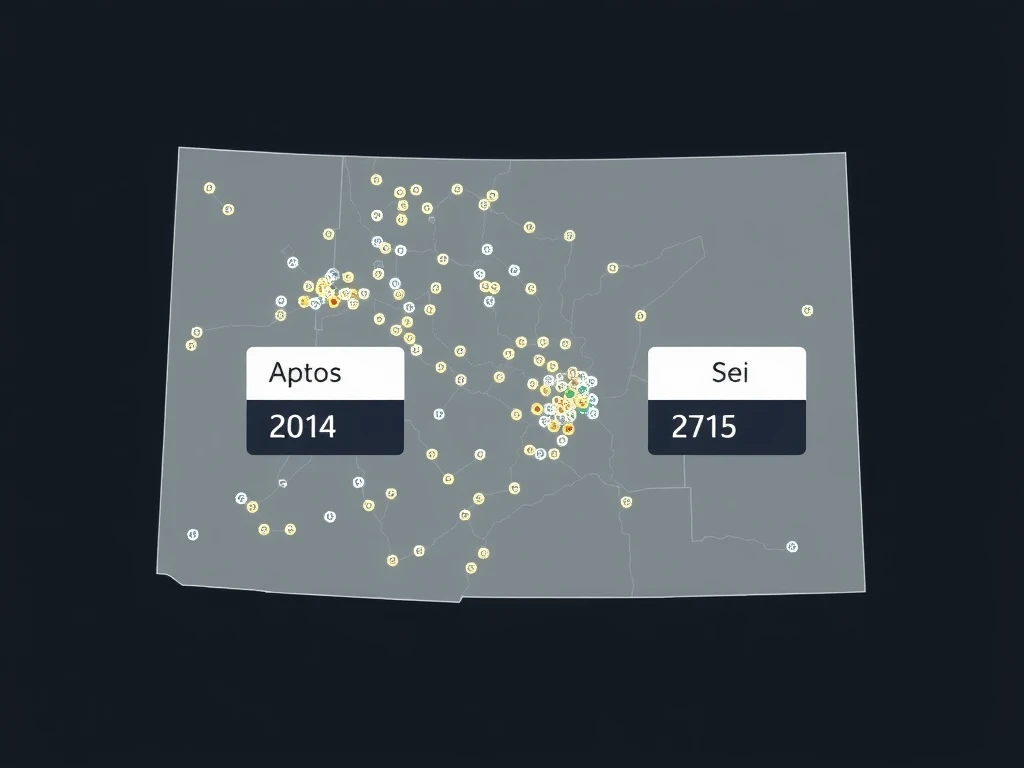Wyoming Stablecoin Breakthrough: Aptos Tops Blockchain Ranking for Pilot Program

Major news from Wyoming’s stablecoin initiative could reshape the landscape for state-backed digital currencies. The Wyoming Stable Token Commission recently announced key selections for its forthcoming stablecoin pilot program, giving a significant nod to Aptos.
Wyoming Stablecoin Pilot Takes Shape
Wyoming is advancing its state-backed stablecoin, known as WYST. This project is designed to be pegged to the US dollar and involves collaboration with LayerZero. The primary goals for WYST are to generate state revenue through interest on reserves held in short-duration US Treasury bonds and to promote financial innovation while increasing transparency in state finance. Development news for WYST first emerged in 2023, following the passage of the Wyoming Stable Token Act.
Aptos and Sei Selected
The Wyoming Stable Token Commission has shortlisted two blockchain platforms, Aptos and Sei, for the pilot phase of its stablecoin project. This decision came after evaluating more than 10 different blockchains. Aptos received the highest marks based on the commission’s network testing. Sei was also selected for the pilot program.
Understanding the Blockchain Ranking Process
The commission conducted network tests on various blockchains to determine suitability for the WYST pilot. These tests evaluated metrics crucial for a stablecoin platform, including transactions per second (TPS), transaction fees, and transaction finality. Based on these criteria, Aptos scored 32 points, placing it at the top of the evaluated list. While Solana also scored 32 points, it was not chosen for the pilot phase. Sei secured its spot in the pilot with a score of 30 points.
Here is a summary of some of the blockchain scores:
- Aptos: 32 points
- Solana: 32 points
- Sei: 30 points
- Avalanche: 27 points
- Ethereum: 26 points
- Base: 25 points
- Algorand: 21 points
The evaluation process highlights the technical performance factors the commission considered most important for its stablecoin infrastructure.
Why Does Stablecoin Legislation Matter Now?
Wyoming has been forward-thinking regarding digital assets and stablecoins for several years. More recently, the focus on stablecoin legislation has intensified at the federal level. A significant development occurred with the US Senate’s passage of the GENIUS Act in a 68–30 vote. This legislation aims to facilitate faster payment settlements, moving away from multi-day or week-long processes to near-instantaneous transactions.
Senator Bill Hagerty, who sponsored the GENIUS Act, stated that once the bill becomes law, businesses and individuals nationwide will benefit from significantly faster payment processing. This legislative momentum reflects a broader recognition of stablecoins’ potential role within the US financial infrastructure.
Growing Corporate Interest in Stablecoins
The increased attention on stablecoins is also evident among large corporations. A recent survey conducted by Coinbase among 100 Fortune 500 executives revealed a substantial increase in stablecoin adoption and exploration. Approximately 29% of these executives reported using or exploring stablecoin utility, a notable jump from just 8% in the previous year. This indicates growing interest from traditional business sectors in leveraging stablecoins for various applications.
What Comes Next for WYST?
With Aptos and Sei selected for the pilot, the Wyoming Stable Token Commission is moving forward with testing and implementing its stablecoin. Wyoming Governor Mark Gordon previously suggested a potential launch for the new stablecoin by July. The pilot program with the selected blockchains will be a critical step towards realizing that timeline and assessing the performance of the chosen platforms in a real-world context for the state’s financial goals.
Summary
Wyoming’s stablecoin project is progressing, with Aptos earning the highest score in the commission’s blockchain ranking and both Aptos and Sei selected for the pilot program. This initiative aims to boost state revenue and financial innovation. The state’s efforts align with growing federal focus on stablecoin legislation, exemplified by the Senate’s passage of the GENIUS Act, and increasing interest from Fortune 500 companies exploring stablecoin use cases. The coming months will show how the WYST pilot program unfolds on the selected blockchain platforms.







